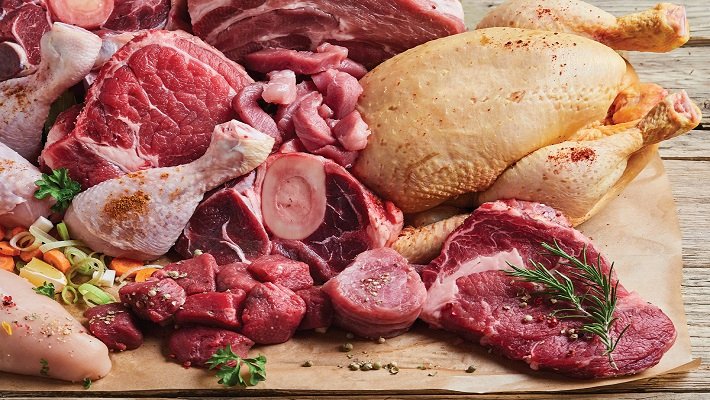[ad_1]
Some residents of Gwagwalada Area Council of the FCT have decried the unhygienic means of transporting meat from abattoirs to the market.
Those who spoke with journalists on Sunday said using wheelbarrows, motorcycles, and rickety vehicles to transport meat was worrisome and posed serious health challenges.
A civil servant, Oyindamola Adegbenga, decried the wheelbarrow mode as unhygienic and equally denounced the way meat is handled at the abattoir.
“I can only eat meat that I am sure about the way it was handled. Most times, we gather ourselves and buy a cow, kill it, and share the meat. This way, I am comfortable eating such meat.
“I think whoever is in charge of abattoirs should educate the butchers on proper ways of handling meat,’’ she said.
Darlington Eboh, an artisan, said while he did not place much emphasis on the way meat is handled, those in charge should do things the proper way and professionally too.
Mr Eboh said those in charge should find out how meat is handled in developed countries and replicate the same in Nigeria.
A butcher, Suleiman Mohammed, said meat handlers would comply if the government introduced better means of conveying meat from abattoirs to markets.
Reacting to the submissions, Sidiama Adamu, principal veterinary officer, Gwagwalada Abattoir, said plans were underway by the FCT Administration to provide haulage vans to convey meat from abattoirs to markets.
He said the Federal Ministry of Agriculture and Rural Development recently donated refrigerated meat vans to the FCT Administration and planned to provide more.
He added that the abattoir management regularly sensitised butchers on handling meat and noted that it was unhygienic to litter the slaughter slab with meat after slaughtering the cows.
“Ideally, meat is supposed to be hanged after slaughtering the cow. Meat is not supposed to have contact with the slaughter slab after the cow has been slaughtered.
“Unfortunately, that is the only available system in the country right now.
“The skinning is supposed to be done while the slaughtered cow is hung; that makes it more hygienic as the meat will not come in contact with cow dung,’’ he said.
Mr Adamu also said that veterinary officers regularly inspected cows brought to the abattoir to be slaughtered to stave off anthrax or other animal diseases transmittable to humans.
He said veterinary officers also sensitise and educate butchers regularly on how to identify unfit animals and how to handle them.
Anthrax is a bacterial infection that occurs naturally in the soil and commonly affects domestic and wild animals. People can get sick with anthrax if they come in contact with infected animals or contaminated animal products.
The Federal Ministry of Agriculture and Rural Development confirmed one case of anthrax disease in a mixed livestock farm in Niger on July 13.
It was the first animal case to be reported in Nigeria since the beginning of the West Africa outbreak in Ghana in June 2023.
The ministry reported eight other cases on the farm in Niger, and the animals that died were observed to have been bleeding from external orifices without blood clotting.
(NAN)
[ad_2]
Source link



